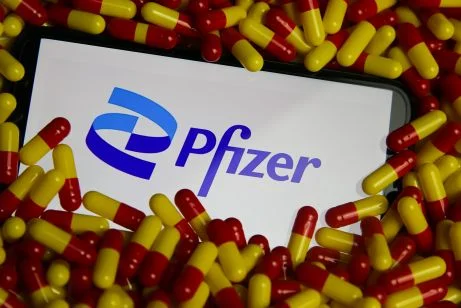Pfizer. The name used to conjure images of vaccine lines and booster shots. But let's be honest, that's old news. The real story isn't the fading glow of the pandemic boom; it's the phoenix rising from those ashes. It's about Pfizer's bold bet on the future of cancer treatment, and whether they can pull it off. And honestly, when I look at the pieces they're putting in place, I can't help but feel a surge of excitement.
The numbers don't lie: Pfizer stock has taken a hit, down 50% over the last three years. Headlines scream about declining revenue and expiring patents. But here’s the thing about headlines – they often miss the forest for the trees. They focus on the now, not the what could be. Pfizer's bet on Seagen, the oncology company they acquired in 2023, is a game-changer. Seagen's existing drugs are already showing double-digit growth, and their technology opens up a whole new frontier in targeted cancer therapies. It's like going from blunt-force chemotherapy to a guided missile that only attacks the cancer cells, leaving healthy tissue untouched. Imagine the implications for patients, for survival rates, for the very definition of "cancer treatment."
And it's not just Seagen. Pfizer is laser-focused on becoming a leader in oncology, and they're not afraid to spend big to get there. They were even in talks to acquire Metsera, a biotech company with a promising obesity drug in development, but it looks like Novo Nordisk might snatch that deal away. But even if they miss out on Metsera, the larger point remains: Pfizer is aggressively pursuing growth in areas with massive potential. Pfizer tops estimates, raises profit guidance even as sales fall.
But this isn't just about profits and pipelines; it's about a fundamental shift in how we approach disease. We're moving away from treating symptoms and towards targeting the root causes of illness at a molecular level. It's a paradigm shift, and Pfizer is positioning itself to be at the forefront. The cost realignment plan to save $7 billion by 2027 isn't just about cutting expenses; it's about freeing up resources to invest in the future. And that future, in my opinion, is personalized medicine, where treatments are tailored to an individual's unique genetic makeup.

Consider this: what if, instead of broad-spectrum chemotherapy, doctors could analyze a patient's tumor and design a treatment that specifically targets its weaknesses? That's the promise of precision oncology, and that’s what Pfizer, with Seagen's technology, is aiming for.
Of course, there are challenges. The transition won't happen overnight. New drugs take time to develop and bring to market. Competition is fierce, and regulatory hurdles are always a factor. But here's where I get really excited: Pfizer is thinking long-term, and they're building a foundation for sustained growth. It's like planting a seed and knowing it will take years to grow into a mighty oak tree, but you plant it anyway because you believe in the future.
What does this mean for us, for you? It means the potential for longer, healthier lives. It means hope for those facing a cancer diagnosis. But with this kind of power comes great responsibility. We need to ensure that these advanced treatments are accessible to everyone, not just the wealthy. We need to address the ethical implications of personalized medicine and protect patient privacy.
It's a lot to consider, but when I think about the potential benefits, I'm filled with optimism. It's the kind of breakthrough that reminds me why I got into this field in the first place.
Pfizer's transformation from a pandemic player to an oncology titan isn't just a business story; it's a human story. It's a story about innovation, resilience, and the unwavering pursuit of a better future. The next chapter is unwritten, but I, for one, am incredibly excited to see what happens next.